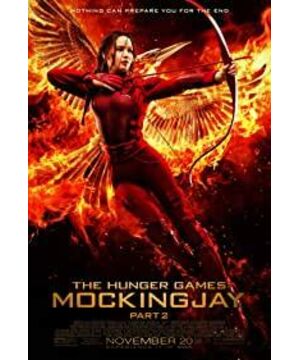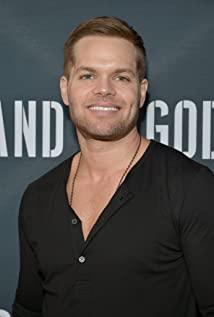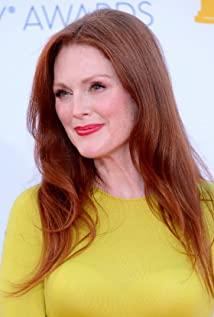It has been a long time since the dystopian genre has new tricks.
Tired of the old-fashioned plot to save the world from the Russians and aliens, the Americans began to mass-produce dystopias, fighting wits and imaginary enemies of various ideologies. Compared with the works of predecessors such as Orwell, the outstanding feature of this theme is that it did not propose anything new, and everything was just a reenactment of the American War of Independence.
The production of this kind of dystopian drama only requires a villain, a fuse, and a final victory. The villain is the most important factor that requires careful design.
American dystopian villains can be divided into three types:
The first is the independent villain . The characteristic of the independent villain is that it acts dictatorially and has cruel methods, which makes the people unhappy, just like the British Empire’s “oppression” of the colonies back then. The independent villain is the weakest type of dystopia. As long as the first evil is eliminated, the problem is equivalent to half solved. As the sole husband usually has obvious moral taints such as murder and arson, his motives are also very selfish, and he is always easy to get caught up. The villains in this game, or the prime minister of the V-Vendetta team, are all of this type.
The second is the philosopher villain . Plato believes that philosophers and wise men are the most suitable people to rule, and there is a type of villain who considers himself the incarnation of the philosopher king. The philosopher villain often has excellent intelligence, quality, leadership, and a series of traits that seem to be extremely suitable for leadership. They appear in the image of an elite, but they often contain ambition—that is, to transform themselves into the first independent villain. The deceptiveness of the philosopher villain is that he advocates that sacrificing some people can achieve greater and longer-term benefits, and can often attract some supporters, which is more difficult than the completely self-interested villain.
The third type is the true social biological villain . This type of villain is a system rather than an individual. True social creatures such as bees and ants often sacrifice individual freedom in order to achieve the best overall interests. This type of system often emphasizes the division of labor and obedience, while ignoring the natural freedom of individuals. Different from the previous two types of villains, the power of true social biological villains is that the opponent is not an individual, but the whole society is his limbs and tentacles. The most common intention is the zerg -the worm-shaped lunar man in Wells’s writings. The worms of the Starship paratroopers and the worms of the Ender series, StarCraft and Alien II are all derived from its image.
To some extent, these three types of villains correspond to the three subconscious enemies of the United States: the independent villain is a tyrant represented by the independence war boss King George III, the philosopher is an enlightened despotism led by the elite of Singapore’s Lee Kuan Yew. The three are the biggest opponents of the Americans-socialism and collectivist ideologies that have been largely demonized. Even after the disintegration of the Soviet Union and the West hailed the end of history for more than two decades, Westerners still have lingering fears.
But the paleness of this type of dystopia is that there is usually only one solution: to cover it with an omnipotent democratic system. The protagonist is forced to go to Liangshan, meet allies, create public opinion, start a decisive battle, assassinate or execute the original villain, and establish a democratic parliament. This is the standard process of the color revolution and the final outcome of dystopian routines such as The Hunger Games. The general story ends here. Just as the prince and princess live a happy life as the standard ending, the establishment of an electoral system is often considered to herald the complete solution of the problem.
But in reality, the real world is far from simple. If the implementation of the bourgeois democratic representative system can achieve social rejuvenation, there will not be so many developing democracies in the world that have fallen into turmoil and chaos. If you regard democracy as the only truth, you will find many doubts in history: for example, it is inferred that the primitive social meditation system is superior to the feudal monarchy, the Roman Republic is superior to the Roman Empire, and the Holy Roman Empire is a superior government system than the Napoleonic Empire, because The emperor of the former is elected by rounds while the latter is governed by one person for life. We still think that the people of Singapore are in dire straits and that Libya is born in heaven.
This is the real poverty of American dystopia: it refuses to further think about the truth under the surface, always regards the imaginary enemy as a dystopia, and uses its own set of universal values as the master key to save the world. They are very afraid, and even avoid thinking about a question: What is the nature of the superiority of democratic politics? The strength of Western countries really comes from their institutional advantages, or is it a derivative of the economic form, industrialization level, high proportion of educated people, and developed productive forces behind it?
So there may be such a view: Western bourgeois democratic representative system is the product of prosperity, not the cause, and it may be one of the many ways of social development, just like an elephant trunk. Cognitive linguist Steven Pinker gave an example to illustrate the superiority of humans over their own endowments: elephants feel that elephant trunks are powerful and easy to use, so all higher creatures should evolve elephant trunks, and creatures without elephant trunks are inevitable. Depraved and savage. But in fact, the elephant trunk may not be the incarnation of universal and general abilities: a baby elephant can use its nose to drink water to eat and tickle, which is very suitable for itself, but the absence of an elephant trunk does not mean that it cannot do these things. .
However, Western society cannot accept the view that its universal value is not universal. Therefore, American dystopias always repeat the splendor of the War of Independence ignorantly, and refuse to explore new things—the U.S. Constitution, private property and presidential system are all. The product of being challenged is not allowed.
Therefore, the current Hollywood dystopia and the dystopian works of the golden age of sci-fi in the 20th century are to some extent opposite: the authors of the 20th century feared a certain future, and doubted and challenged reality; the current war of independence Re-readers are afraid of being doubted and challenged, so they try to make the public give up speculation and promote their own justice and invincibility . From the entertainment point of view, this kind of work may not be ugly, but watching too much will always make people tired of aesthetics—there are only a few possible combinations of the three types of imaginary enemies of the Western Democracy. I don’t think it’s absolutely bad for Americans to love exporting values, but it’s the original sin to fail to create new and interesting things, just like these stinky and long Hunger Games.
But are there any works that use the Western world as a dystopian?
I think of one for the time being-Liu Cixin's novel version of Three-Body 3 and The Wandering Earth, which bitterly satirizes universal value and public opinion by no means a golden rule. But on the other hand, there is also China 2185 in Liu's writings, such as the description of a highly democratic and equal Chinese society under the blessing of future technology, which shows the vitality of technological optimism.
All in all, sci-fi works need to be brave enough to reflect on reality, criticize the present, and find a window to break through reality, rather than just being satisfied with adherence to current values and eulogizing. So I think The Hunger Games is always just a youth political film with science fiction and dystopia, showing a very orthodox traditional Western political view. The lack of vigour that sci-fi works should have is not only a problem faced by this work, but even the entire sci-fi world, which is currently declining. But coming back to this film, I think its weakness lies in its unclear positioning: if you want to make good use of sci-fi action elements, you must either take the popcorn route with amazing special effects, or take the boring depth of non-mainstream, but you can’t shoot boring and boring. Popcorn. The weakness of The Hunger Games lies in its greed for more completeness. It combines the weaknesses of two types of films: values and sci-fi cores are almost non-existent, and the action scenes and visual elements are extremely boring. Although not a failure, they can only be counted as similar blockbusters. The doctrine of the mean works too.
View more about The Hunger Games: Mockingjay - Part 2 reviews











